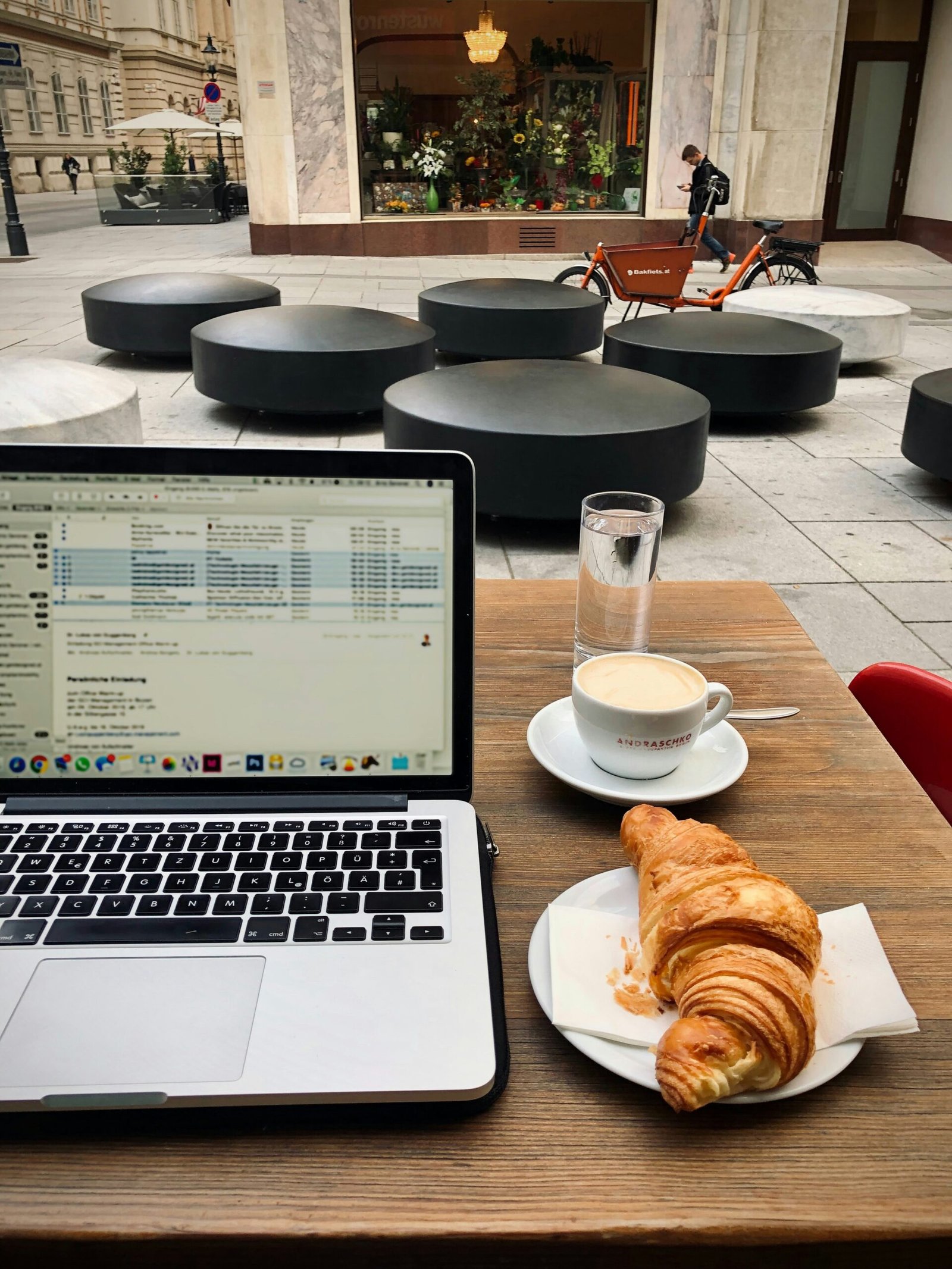Introduction: Understanding the Challenge
Job seekers often find themselves in situations where they need to prepare for an interview on short notice. This can occur for various reasons, such as receiving a sudden call from a prospective employer, an internal job posting with a tight deadline, or an unexpected opportunity through networking. Regardless of the cause, the pressure of limited time can induce significant stress and anxiety.
In these moments, staying calm and focused becomes crucial. Panicking or feeling overwhelmed can hinder your ability to think clearly and perform effectively. Instead, it is essential to approach the situation with a clear mind and a structured plan. Understanding that short notice interviews are a common occurrence can help in accepting the challenge and preparing effectively.
Preparation, even under time constraints, is key to demonstrating confidence and competence during the interview. By adopting practical tips and strategies, you can maximize your readiness and present yourself as a well-suited candidate for the position. The following sections will provide actionable steps to help you navigate the interview preparation process efficiently, ensuring you make a positive impression despite the limited preparation time.
Research the Company Quickly but Thoroughly
When you have a job interview on short notice, conducting efficient and effective research on the company is crucial. Begin by visiting the company’s official website, which is often a treasure trove of valuable information. Focus on the ‘About Us’ section to understand the company’s mission and values. This insight will help you align your responses with the company’s ethos, demonstrating your genuine interest in the organization.
Next, explore the company’s products or services. Familiarize yourself with their key offerings, understanding their unique selling points and the market they serve. This knowledge will enable you to discuss intelligently how your skills and experiences can contribute to their objectives.
Additionally, review recent news articles and press releases related to the company. These can provide context about the company’s current projects, achievements, and challenges. Websites like Google News or the ‘News’ section on the company’s website are excellent resources for this purpose. Being aware of recent developments will allow you to tailor your responses and show that you are up-to-date with the company’s activities.
LinkedIn is another powerful tool for company research. Visit the company’s LinkedIn page to get an overview of their corporate culture, employee achievements, and organizational updates. You can also browse through the profiles of current employees, particularly those in departments relevant to the position you’re applying for. This can give you an idea of the skills and experiences that are valued by the company.
Lastly, look for any available reviews or feedback about the company on platforms like Glassdoor. While these should be taken with a grain of salt, they can provide additional perspectives on the company’s work environment and management style.
By efficiently gathering this key information, you can enter your interview well-prepared, demonstrating your proactive approach and genuine interest in the role and the company.
Understand the Job Description
When preparing for a job interview on short notice, one of the most critical steps is to thoroughly understand the job description. This document outlines the key responsibilities, required skills, and qualifications necessary for the role. By closely reviewing it, you can identify the core competencies that the employer is seeking. This will enable you to tailor your responses and highlight your most relevant experiences during the interview.
Start by reading the job description multiple times to ensure you grasp all the essential elements. Pay particular attention to the required and preferred qualifications, as well as any specific skills mentioned. Make a list of these key points, and then assess your own qualifications and experiences against them. This will give you a clear understanding of how well you match the job requirements and where you may need to focus your preparation efforts.
Once you have identified the key skills and qualifications, think about your past experiences that align with these requirements. Prepare specific examples that demonstrate your proficiency in these areas. For instance, if the job requires strong project management skills, recall a time when you successfully led a project, outlining the challenges you faced and how you overcame them. These concrete examples will help you convey your suitability for the role convincingly.
Additionally, consider any transferable skills that may not be explicitly listed in the job description but are still relevant. Skills such as problem-solving, teamwork, and effective communication are often valuable in any job. Highlighting these abilities can further strengthen your candidacy.
In summary, a thorough understanding of the job description is vital for effective interview preparation, especially on short notice. By identifying the key skills and qualifications, assessing your own experiences, and preparing specific examples, you can present yourself as a strong candidate who is well-suited for the role.
Prepare Your Responses to Common Interview Questions
When faced with a job interview on short notice, a crucial step is to prepare your responses to common interview questions. This preparation can significantly boost your confidence and help you articulate your thoughts effectively during the interview. Common questions you might encounter include inquiries about your background, strengths, weaknesses, and career goals. To craft strong, concise answers, consider the following strategies.
Firstly, when discussing your background, focus on relevant experiences that showcase your qualifications for the position. Highlight your achievements and how they align with the job requirements. For instance, if asked to “Tell me about yourself,” provide a brief summary of your professional history, emphasizing key accomplishments and skills pertinent to the role.
When addressing your strengths, select attributes that directly relate to the job. Instead of giving a generic list of strengths, provide specific examples of how these traits have benefited your previous employers. For example, if you mention that you are highly organized, describe a particular project where your organizational skills were crucial to its success.
Discussing weaknesses can be challenging, but it’s essential to approach this question with honesty and a proactive attitude. Choose a genuine weakness and explain the steps you are taking to improve. This demonstrates self-awareness and a commitment to personal growth. Avoid clichés like “I’m a perfectionist” unless you can provide a unique spin that offers insight into your professional development.
For career goals, articulate both your short-term and long-term aspirations, ensuring they align with the company’s objectives. This shows that you are not only focused on your growth but also on contributing to the organization’s success.
To effectively structure your answers, employ the STAR method (Situation, Task, Action, Result). This technique helps you provide clear and structured responses. For example, if asked about a past challenge, outline the Situation, describe the Task you needed to accomplish, explain the Actions you took, and highlight the Result of your efforts. This method ensures your answers are comprehensive and demonstrate your problem-solving capabilities.
Dress Appropriately and Professionally
When preparing for a job interview on short notice, selecting the right outfit is crucial. Your appearance can significantly impact the first impression you make on potential employers. If possible, research the company’s dress code in advance. Many organizations have guidelines available on their websites or social media pages. If the company’s dress code is unknown, it is generally safe to opt for business formal or business casual attire.
For a business formal environment, men should consider wearing a suit with a tie, while women might choose a tailored dress or a suit with a blouse. Business casual settings often allow for slacks and a button-down shirt for men, and a skirt or dress pants with a conservative top for women. Regardless of the dress code, ensure your clothes are clean, well-fitted, and free of wrinkles.
In addition to selecting appropriate attire, grooming and personal hygiene are equally important. Make sure your hair is neatly styled and facial hair is trimmed. For women, minimal and natural makeup is advisable. Both men and women should ensure their nails are clean and trimmed. Avoid heavy fragrances, as they can be distracting or overpowering in a small interview room.
Attention to detail is key; polished shoes and minimal, tasteful accessories can enhance your overall appearance. It’s also wise to prepare your outfit the night before to avoid any last-minute issues. By dressing appropriately and maintaining a polished look, you can project confidence and professionalism, making a positive impression on your potential employer.
Gather Necessary Documents and Materials
When preparing for a job interview on short notice, ensuring you have all necessary documents and materials is crucial. Start by printing multiple copies of your resume. Having extra copies demonstrates preparedness and allows you to provide one to each interviewer, as well as to any unexpected interview participants.
Next, compile a list of professional references. This list should include the names, titles, and contact information of individuals who can vouch for your qualifications and work ethic. Inform your references in advance about the interview and the potential for them to be contacted. This proactive approach not only shows your organizational skills but also ensures your references are prepared to respond promptly and positively.
In addition to resumes and references, gather any relevant work samples or a portfolio that showcases your skills and accomplishments. Tailor these materials to the specific role you are applying for. For instance, if you are pursuing a position in graphic design, include examples of your best design work. If the role is in marketing, compile successful campaigns or projects you have spearheaded. These tangible proofs of your abilities can significantly bolster your interview presentation.
To avoid last-minute scrambling, organize these documents efficiently. Use a professional-looking folder or portfolio case to keep everything neat and accessible. Arrange the contents in a logical order, such as resumes first, followed by references, and then work samples. This organization will help you quickly retrieve any document when needed, allowing you to maintain a composed and professional demeanor throughout the interview.
By thoroughly preparing and organizing your materials, you not only streamline the interview process for yourself but also leave a lasting impression of diligence and attention to detail with your potential employer.
Practice Your Body Language and Communication Skills
Non-verbal communication plays a critical role in job interviews, often conveying more to the interviewer than the words you speak. Staying conscious of your body language can significantly enhance the impression you make. Begin by maintaining good posture; sit up straight and keep your shoulders relaxed. This not only projects confidence but also shows attentiveness and respect for the interviewer.
Eye contact is another essential element of effective non-verbal communication. Make sure to look the interviewer in the eye, but avoid staring. Balancing eye contact can convey sincerity and keep the conversation engaging. Additionally, using hand gestures can help emphasize your points, but be mindful not to overdo it. Subtle, controlled movements can complement your verbal communication and make your answers more compelling.
Moving on to verbal communication, speaking clearly and confidently is paramount. Practice speaking at a moderate pace to ensure your responses are understandable. Rushing through answers can make you appear nervous, while speaking too slowly might suggest uncertainty. To improve clarity, it’s beneficial to practice articulating your thoughts concisely. This not only makes your answers more impactful but also minimizes the use of filler words such as “um,” “like,” and “you know.”
Effective communication is a skill that can be honed with practice. Consider conducting mock interviews with a friend or using a mirror to observe and adjust your body language and verbal delivery. Recording yourself can also provide valuable insights into areas that need improvement. By refining these skills, you can present yourself as a confident, composed, and articulate candidate, even on short notice.
Plan Your Journey and Arrive on Time
Planning your journey for a job interview on short notice is crucial for ensuring that you arrive on time and make a positive first impression. Begin by determining the exact location of the interview and the best route to get there. Utilize reliable navigation tools and apps to identify the quickest and most efficient path, taking into consideration the current traffic conditions. If driving, ensure your car is in good working condition, and consider alternative routes in case of unexpected delays.
For those relying on public transportation, check the schedules in advance. Verify the timing of buses, trains, or subways, and identify the nearest stops to your destination. Be mindful of any potential delays or service changes that may affect your journey. It’s advisable to have a backup plan, such as a rideshare option, in case public transportation faces disruptions.
Parking can also be a significant factor in your timeliness. If driving, research parking options near the interview location. Look into nearby parking garages, lots, or street parking regulations. If possible, visit the area beforehand to familiarize yourself with the parking situation and identify the most convenient spots. Keep some change or a parking app handy for metered parking.
To demonstrate reliability and respect for the interviewer’s time, aim to arrive at the location at least 10-15 minutes early. This buffer period will allow you to account for any unforeseen circumstances and give you a few moments to compose yourself before the interview. Being early also shows your commitment and preparedness, traits highly valued by potential employers.
In summary, thorough planning of your journey plays a vital role in ensuring punctuality for your job interview. By checking traffic conditions, public transportation schedules, and parking options, you can reduce stress and make a strong, timely entrance, setting a positive tone for the remainder of your interview.





